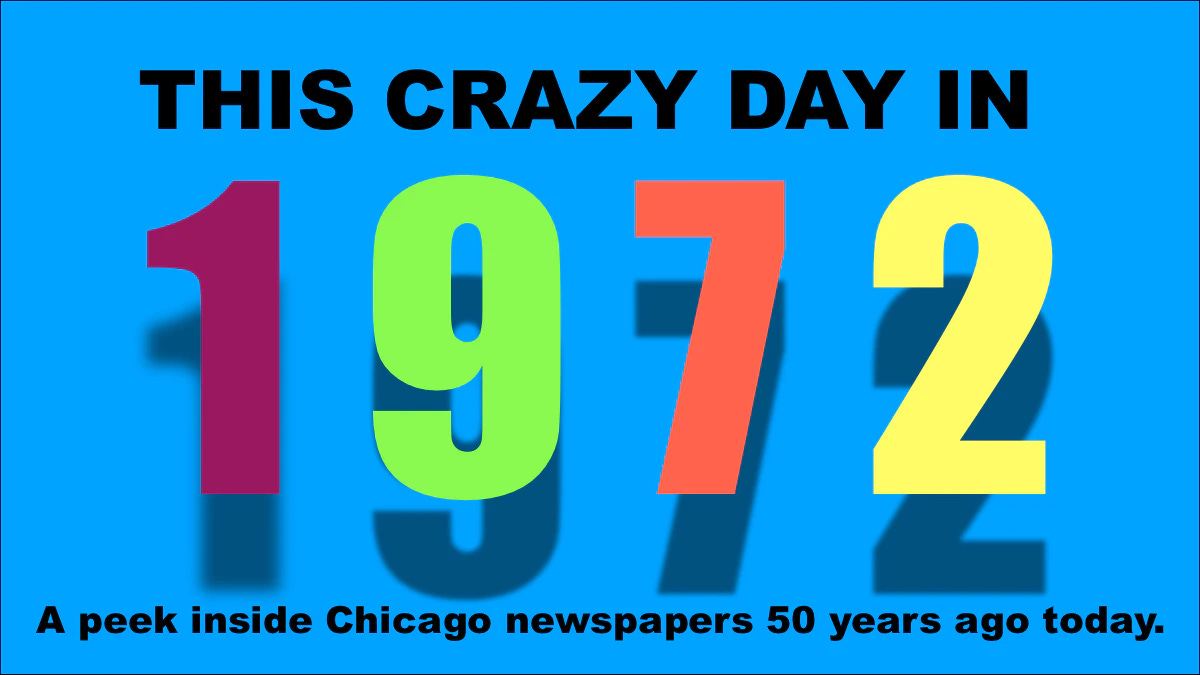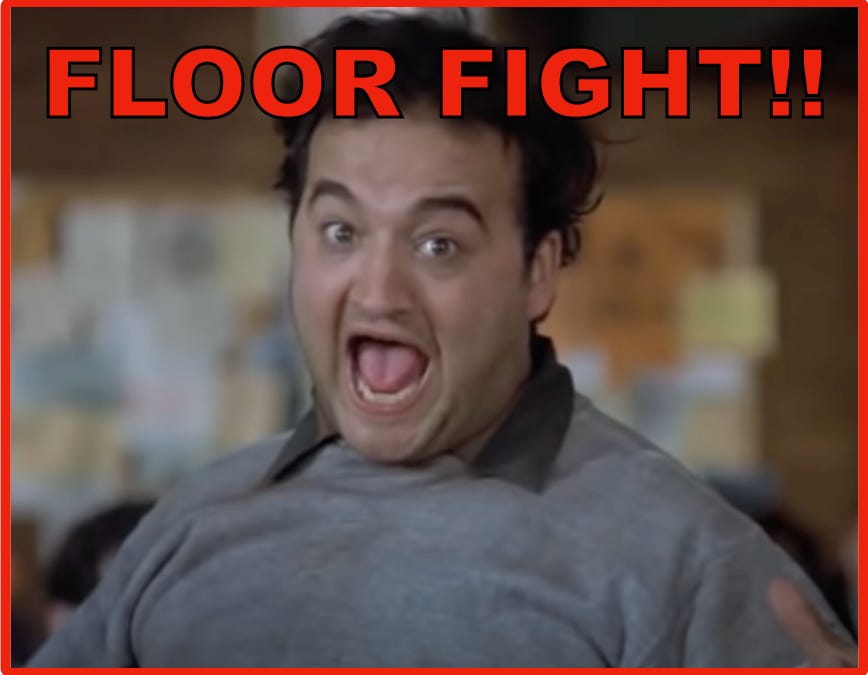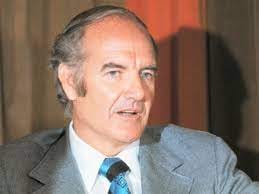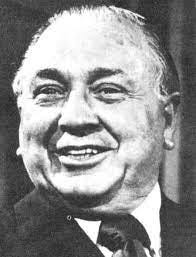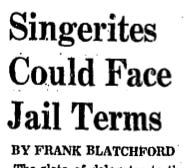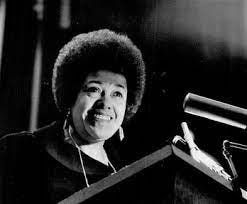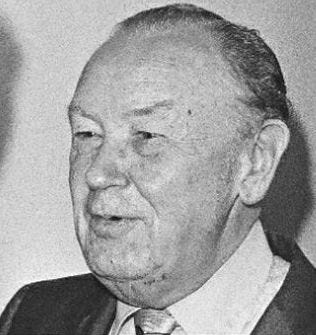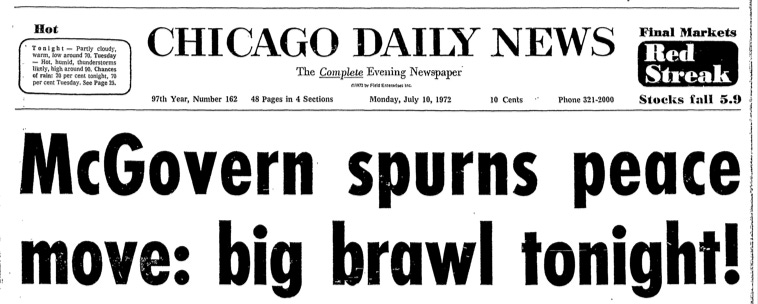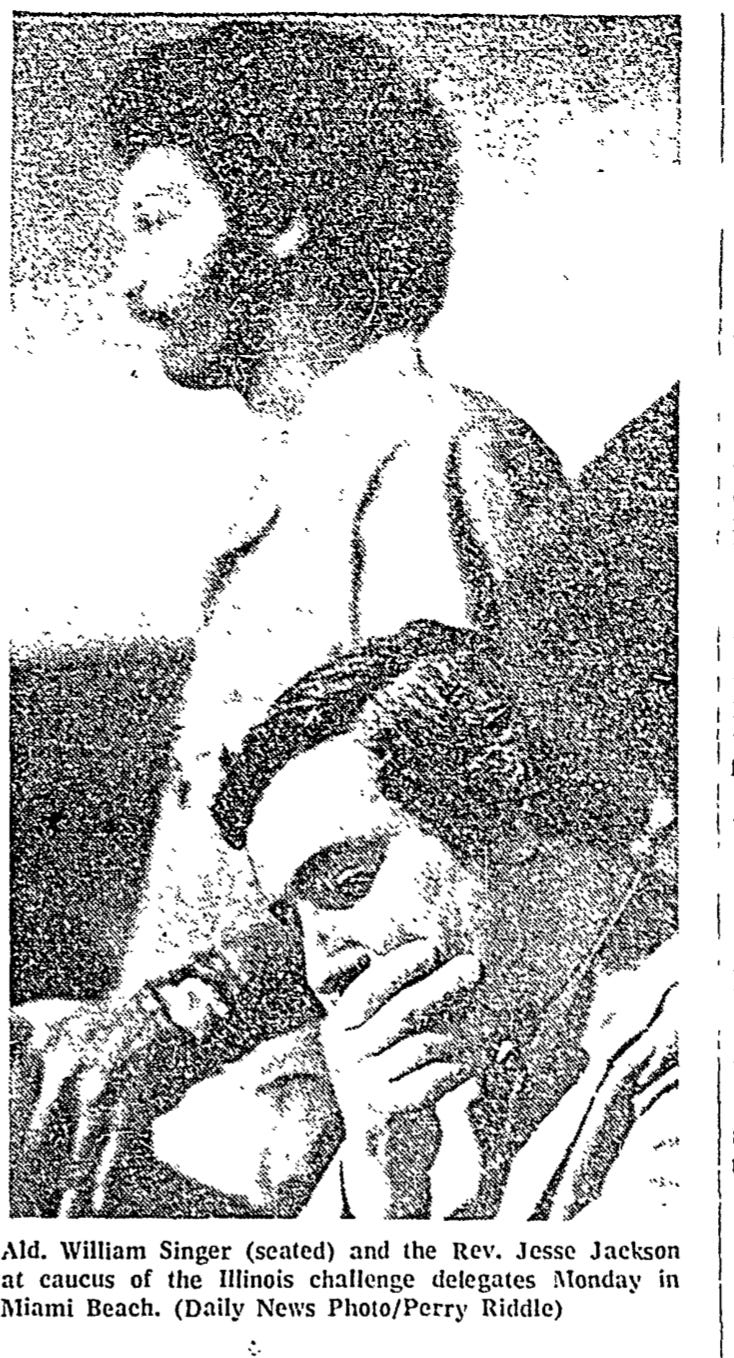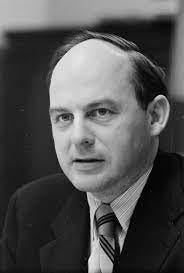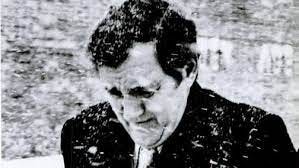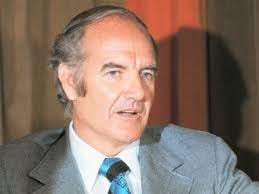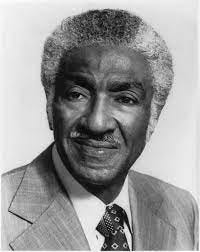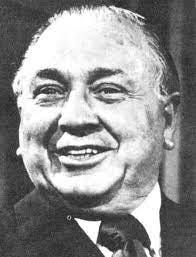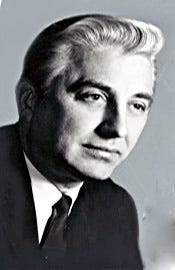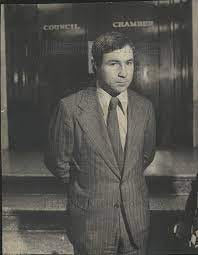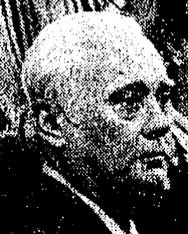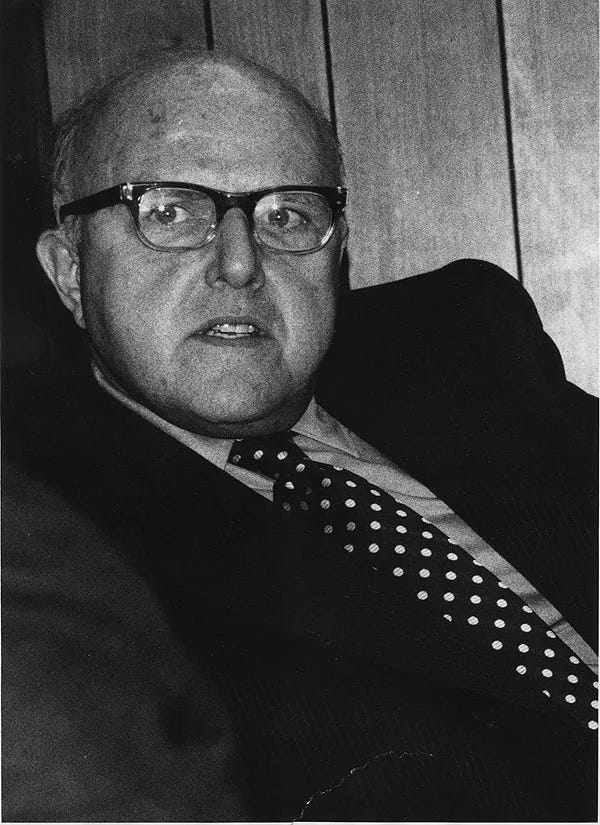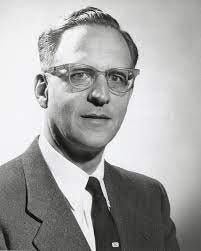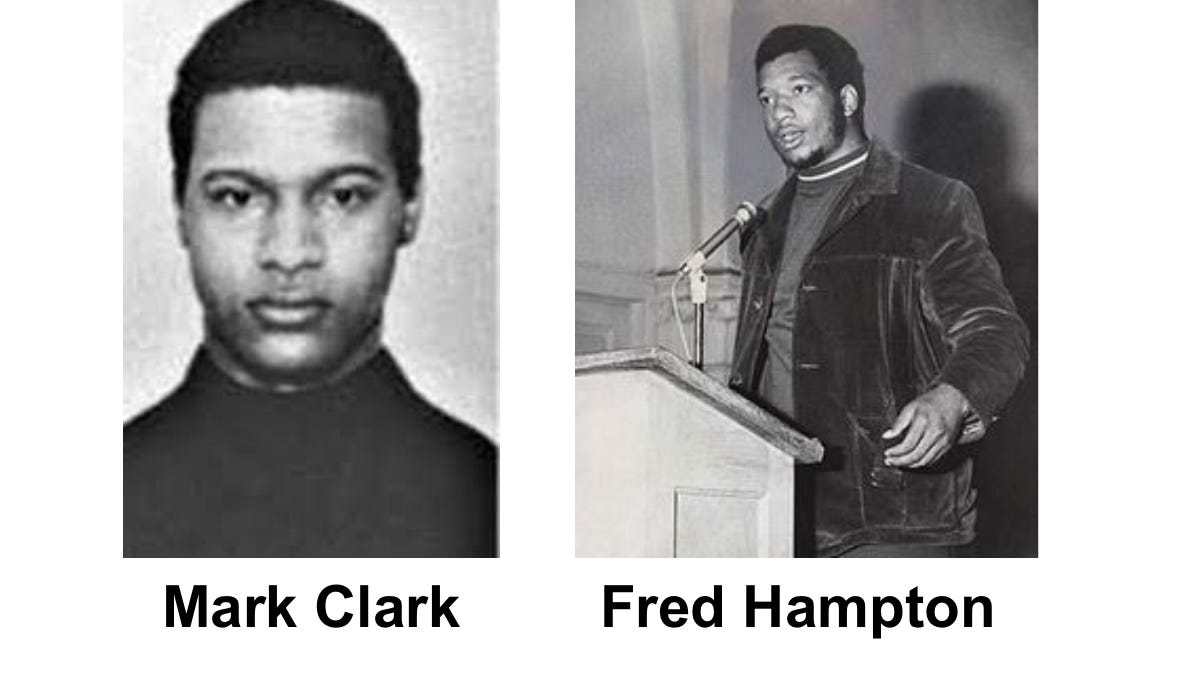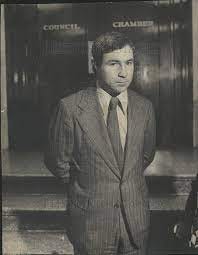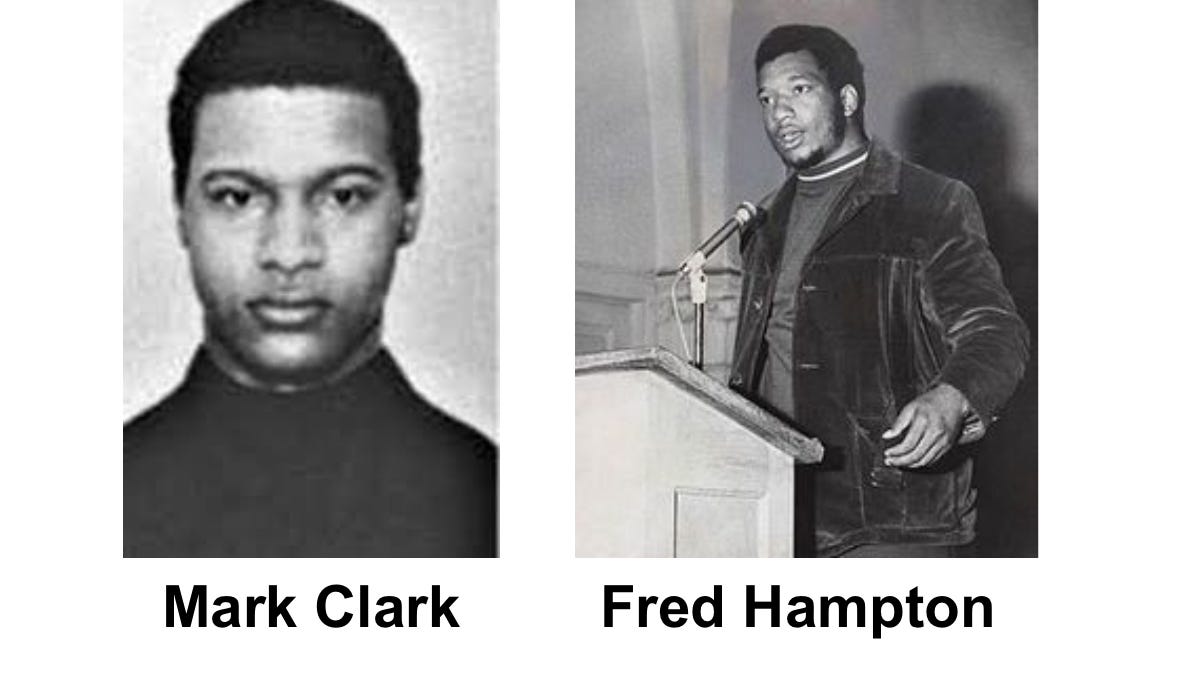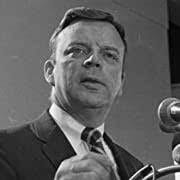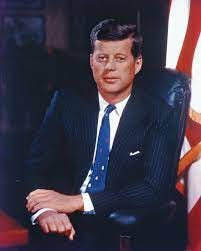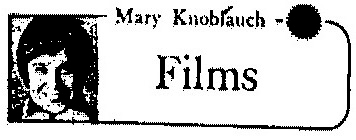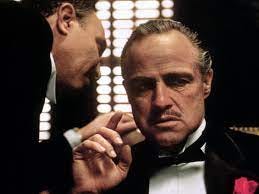THIS CRAZY DAY IN 1972: Mighty Daley has struck out
Weekly Compilation July 10-16, 1972
To access all website contents, click HERE.
Why do we run this separate item peeking into newspapers from 1972? Because 1972 is part of the ancient times when everybody read a paper. Everybody, everybody, everybody. Even kids. So Steve Bertolucci, the 10-year-old hero of the novel serialized at this Substack, read the paper too—sometimes just to have something to do. These are some of the stories he read. Follow THIS CRAZY DAY on Twitter, @RoselandChi1972.
Delegates poured into Miami Beach over the weekend for the 1972 Democratic National Convention, with record numbers of women, minorities and young people. The changing faces of the delegates is a big story everywhere—but especially in Chicago.
And especially one specific face.
Who left O’Hare and Midway for Miami?
The “Daley 59,” who are the Chicago delegates elected in the March primary and backed by Mayor Daley’s Democratic Machine…
…AND an alternate slate of Chicago delegates picked by independent Democrats led by Ald. Bill Singer and Rev. Jesse Jackson. (How were those delegates picked? It’s complicated. See Mike Royko on July 5 for the explainer.)
Singer and Jackson are working feverishly in Miami.
No one knows where Mayor Daley is.
The convention’s Credentials Committee gave the official Chicago convention seats to the Singer-Jackson delegates two weeks ago and dumped the Daley 59, because their selection broke new national Democratic Party rules for delegate selection, including a requirement to reflect voter demographics with more women, minorities and young people. (See June 2 for the explainer on that.)
But Mayor Daley isn’t backing down.
That means…
Before choosing a presidential candidate, the convention will debate and vote on two politically radioactive issues as it opens Monday night, July 10. They are inextricably linked, as you’ll soon see:
Will candidate Sen. George McGovern get all 271 California delegates, since it’s a winner-take-all state and McGovern won—or will McGovern lose the 151 elected California delegates who were committed to other candidates?
Why is it even a question? Because more new Democratic Party rules technically banned the winner-take-all format. McGovern’s opponents were sore losers and complained to the convention’s Credentials Committee, which took away the 151 challenged delegates. McGovern wants them back. If he succeeds, he all but sews up the nomination.
Will the convention back the Credentials Committee’s decision to dump Mayor Daley’s delegates?
The Democrats are also going to fight about two parliamentary rulings by Democratic National Chairman Lawerence O’Brien on how the convention votes on these credential issues. Both rulings make it easier for McGovern to win back all those California delegates, and thus affect the Daley question.
O’Brien ruled that the 120 unchallenged California McGovern delegates are eligible to vote on the challenged California delegates.
He also ruled that credential issues will be won not by the same number of votes required to nominate a candidate—that’s 1,509 votes—but by a majority of delegates who are eligible to vote on each challenge, which is always a smaller number. Under that system, McGovern would only need 1,433 votes to win on the California delegate question. His fellow sore loser candidates are furious about that and hope to overturn O’Brien’s ruling.
The convention will vote on California first, which is why we care about it here. McGovern needs every vote he can get to win back the California delegates, and clinch the nomination.
At least 45 of the 59 Singer-Jackson delegates are for McGovern.
Mayor Daley’s delegates are uncommitted, because Mayor Daley likes to decide who everyone will vote for at the convention. Mayor Daley was an early Muskie supporter. And the new reform rules that got Mayor Daley kicked out of the convention were formulated by a group called the McGovern Commission. Make of all that what you will, but only if you figure out there’s no love lost between Mayor Daley and McGovern.
Now: If you’ve been keeping up, skip ahead to July 10.
If you want more background, see June 2 in THIS CRAZY DAY IN 1972 for a look at hearings conducted by a national Democratic party representative to hear both sides of the Chicago delegate issue; see June 23 for Daley loyalists raiding the Singer-Jackson meetings that picked their alternate slate of delegates; and see Mike Royko 50 Years Ago Today on June 26 for young Richard M. Daley leading one of those meeting raids. See July 3 for Singer and Jackson’s initial reactions to winning their challenge as Daley gets dumped by the Credentials Committee, and see July 5 for reaction after a U.S. Court of Appeals Court ruled against Mayor Daley’s request to throw out the Democratic Party’s decision to unseat his delegates.
Here we go.
Oh, you’ll get to a few things that happened outside the convention, too.
July 10, 1972
Chicago Tribune
Just to up the ante even more, the Chicago delegate issue is a legal thing too.
After the Credentials Committee dumped the Daley 59, Mayor Daley’s people went to the U.S. Court of Appeals asking for an injunction to bar the Singer-Jackson delegates from actually taking the Chicago convention seats.
The Appeals Court said the convention should vote on it.
The U.S. Supreme Court backed up the Appeals Court.
So Ald. Paul Wigoda filed suit for the Daley forces locally.
Two days ago, Circuit Court Judge Daniel A. Covelli ruled for Mayor Daley and ordered the Singer-Jackson delegates not to take those convention seats.
Ald. Anna Langford, now being called a cochairman of the Singer-Jackson delegates in the papers, says she’s fine with going to jail for contempt of court when she gets back to Chicago.
“‘By running to Covelli, Mayor Daley has informed the world that he, Mayor Daley, is higher than the Supreme Court,’ she charged.”
Judge Covelli “has a reputation of jailing those who violate his court orders.”
“‘I take the position that if people are permitted to violate injunctions issued by the court, we should close up the courts and let everyone carry a six-shooter,’ Covelli said yesterday in an interview,” writes the Tribune’s Frank Blatchford.
I wish I could find a picture of Judge Covelli.
Ald. Tom Keane, who’s one of the Daley 59 delegates as well as Mayor Daley’s second in command, says if the Singer-Jackson people take the Chicago convention seats, he’ll try to get a Florida court to issue a contempt citation.
Judge Covelli tells the Trib’s Blatchford that courts shouldn’t “shirk their duty” to enforce the law. Blatchford writes that nobody would accuse Covelli of shirking.
“He has jailed some well-known public figures in his 22 years on the bench,” writes Blatchford, including the president of the Cook County College Teachers Union (30 days in Cook County Jail last year) and Tom Duggan, “a television commentator, jailed for 10 days for contempt of court for remarks he made on television about a child custody case.”
July 10, 1972
by Peter Lisagor
Democratic presidential candidate Sen. Edmund S. Muskie “proposed an afternoon summit conference of the Democratic presidential candidates to resolve major disputes and avoid a ‘protracted and damaging controversy.’”
Muskie means the California and Chicago delegate issues.
If McGovern gets all the California delegates, Muskie and the other candidates can kiss the nomination goodbye.
As for the Chicago issue, “Pressure was exerted on Muskie to favor McGovern’s position on the California dispute and support the effort of Chicago Mayor Richard J. Daley and 58 others to regain convention seats denied them by the credentials committee.”
Whoever pressured Muskie wants Mayor Daley seated because many Democrats fear no nominee can win in November without winning Illinois, which means winning Chicago, which means making Mayor Daley happy.
“Muskie sent a telegram to each candidate, urging the meeting—alone without staff. He said in a statement that the convention was being turned into ‘two armed camps,’ and if the battle is continued, ‘the toll in political dead and injured could be horrendous and our party and its nominee could be among the casualties.’”
But McGovern campaign manager Gary Hart—yes, that Gary Hart— “threw cold water on the Muskie plan” and said McGovern would insist any meeting be open to the public…
…and that McGovern wants ALL the California delegates.
Which is why the Daily News switches its July 10 headline in a later edition to:
“In his statement to newsmen, Muskie used phrases like ‘self-slaughter’ to describe the bitter fighting over the credentials contest.
“With his statement, Muskie dominated the pe-convention news Monday.”
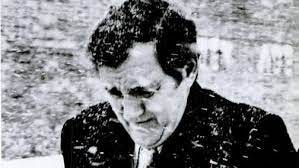
Meanwhile:
The Singer-Jackson delegation is furious to hear “a report…published locally” that McGovern might throw them out and seat the Daley 59 instead if McGovern wins all the California delegates.
For some reason the Daily News isn’t naming the newspaper that reported this bombshell. It’s common practice for the Chicago papers to not name each other in 1972, but the newspaper in this case is the Miami Herald.
The Daily News’ Charles Nicodemus reports that the Singer-Jackson delegation has demanded McGovern’s personal promise that the “local report” isn’t true, before Monday night’s opening session.
If not, the Singer-Jackson delegates won’t back McGovern when the “stop McGovern” forces try to reverse Democratic Committee Chairman Lawrence O’Brien’s parliamentary rulings that make it easier for McGovern to win back the 151 challenged California delegates.
“I think it’s clear that the procedural vote is going to be so close that McGovern can’t win it without most of our 59 votes,” Ald. Bill Singer told his alternate slate of delegates. “And he’s not going to get those votes without guaranteeing us that he hasn’t sold us out to Mayor Daley.”
McGovern campaign manager Gary Hart—yes, that Gary Hart—insists the “local report” isn’t true.
Inside Monday’s Chicago Today, this is how political editor Joel Weisman plays the Mayor Daley delegate story:
“A confident Mayor Daley appears on the verge of taking a seat—59 of them, in fact—at the Democratic National Convention.
“The prospect of this happening has the Chicago challenge delegation, headed by Ald. William Singer (43d), so angry they are threatening to fight the very man most of them wanted, Sen. George S. McGovern (S.D.)….Growing rumors that McGovern is willing to seat the Daley 59 in the interests of party unity have the Singer people more than concerned.”
Weisman says the Miami Herald quoted McGovern yesterday saying that he doesn’t prefer to seat the Daley delegation and unseat Singer’s—he’d prefer a compromise where both groups are seated with a 1/2 vote for each delegate.
“But Singer’s people said they wouldn’t buy any such compromise,” writes Weisman.
“In an emotional post-midnight caucus, Singer told the delegates that if (the Miami Herald story is true), ‘I think we’d have to think very seriously about how we cast our votes.”
Ald. Anna Langford (16th) is more blunt: “If he [McGovern] needs Mayor Daley’s support more than he needs us, we don’t need him.”
Weisman says that Mayor Daley’s fortunes have suddenly risen again because there’s a Credentials Committee minority report that, if adopted, both gives McGovern all the California delegates AND reseats Mayor Daley.
Daley’s people won’t be able to vote on that minority report because right now, Singer’s people have the credentials to vote. But Weisman says Daley forces “could be quite influential behind the scenes.”
Overall, the “preconvention mood of the Daley forces was one of overwhelming confidence,” writes Weisman. “They lobbied vigorously…their chief lobbying tools were newspaper reprints of columns and news stories pointing out that the Singer delegates had violated several party reforms, just what the Singer group accuses Daley delegates of doing.”
What Weisman really means is that the Daley forces are distributing copies of Mike Royko’s July 6 column, an open letter to Ald. Singer, in which Royko wrote that he would have voted to seat the Daley 59.
Tomorrow, the Sun-Times’ Jerome Watson will note that “Anti-Chicago-challenger literature featuring Chicago newspaper columns unfavorable to the challengers was found placed on every seat at the convention.” He also means Mike’s July 6 column.
BTW, the Daley people could also have added copies of Royko’s July 5 column pointing out that Rev. Jesse Jackson is a strange delegate, since he didn’t even vote in the primary and has backed Republicans in the past. And Royko’s July 7 column too, where he ate blintzes with Machine precinct captain Idelle Good at Ashkenaz Restaurant and Delicatessen on Morse and heard her bitch about how she got 401 votes for Daley’s delegates in her precinct versus 19 votes that went to delegates now with the Singer-Jackson crew, yet her elected delegates got kicked out of the convention.
The Sun-Times take: When asked about the idea of re-seating Mayor Daley’s delegates and kicking out the Singer-Jackson people in exchange for getting back all the California delegates, McGovern said, “I would accept that.”
“Singer, apprised of the newspaper account just before the beginning of a post-midnight caucus of the challengers in the Diplomat Hotel here, said he would want ‘a damned good, iron-clad’ assurance that McGovern was not selling out the challengers before Singer would support him.”
Also:
Here’s kind of a funny aside involving U.S. Sen. Adlai Stevenson, who you may remember tried and failed to replace Daley as head of the Illinois delegation to the national convention, a position Daley has held since 1958. (See June 14 and June 16, “Daley rolls over Adlai.”)
Sen. Stevenson held a press conference about the Chicago delegate issue upon his Miami arrival. Per Chicago Today’s Joel Weisman, it was the very first thing Stevenson did when he got off the plane.
Here’s the full Stevenson quote from the Daily News account:
“I don’t believe either delegation is qualified to represent Chicago. The Daley delegation apparently broke the reform guidelines to win election, but the challengers were not chosen according to any rules, nor do I think their strong support for McGovern accurately reflects sentiment in Chicago.”
Stevenson is a Muskie delegate.
Recall that Mayor Daley’s delegates are uncommitted, because Mayor Daley likes to decide who everyone will vote for at the convention. Mayor Daley was an early Muskie supporter.
Recall also that at least 45 of the 59 Singer-Jackson delegates are for McGovern.
Not that Sen. Stevenson necessarily has any ulterior motive here for seeking a compromise. Just saying. But Muskie sure could use Mayor Daley’s votes on that California question.
The funny part: “Stevenson also found himself in the middle of the Chicago delegate fight when he was forced to sign as a witness to the serving of a summons on [Rev. Jesse] Jackson, informing him of the Daley delegation’s court order barring the Singer delegates from taking the convention seats.”
It just sounds like such a sitcom situation.
July 10, 1972
Chicago Today
by Dorothy Collin
“Yesterday was Find Mayor Daley Day in Miami Beach,” writes Today’s Dorothy Collin.
“The most visible of men during the 1968 Democratic National Convention in Chicago had become the Invisible Man of the 1972 convention.
“The already frantic rumor-mongering in hotel lobbies and coffee shops reached the proportions of Orson Welles claiming Martians had landed.”
A few excerpts from Dorothy Collin’s day searching for Mayor Daley:
“12:15 a.m. -The Rev. Jesse Jackson tells a caucus of his and Singer’s delegates that the mayor has landed—in Fort Lauderdale.
“2:15 a.m. — An aide to an Illinois official says Mayor Daley is still in Chicago.”
“1:30 p.m. —An Associated Press photographer lurking at the Carriage House, a discreet and very handsome apartment hotel, says Mayor Daley has left Chicago on a private plane and is expected momentarily.
“1:32 p.m. —The desk clerk at the Carriage House says: ‘Daley? We expect no one by that name.’ The manager admitted that Mayor Daley knows someone who lives there and might be using his apartment, but, of course, he didn’t know for sure.”
“4:00 p.m.—Ald. [sic] Ralph Metcalfe says he was on the flight with Daley. ‘Did you SEE Daley?’ he is asked. ‘Well, no, we saw some of his guards and it was general knowledge he was on the plane.’” [Note: A copy editor must have caught hell for misidentifying U.S. Rep. Ralph Metcalfe by using his former title of alderman.]
“6 to 7 p.m. — A covey of Chicago ward bosses disguised as delegates say: (a) Daley is here. (b) Daley will soon be here. (c) Daley is in Chicago. One alderman says, ‘We wouldn’t lie to you about this one.’ He is serious.”
“10:30 p.m. —The mayor’s son, Michael, says he doesn’t know anything.
“MIDNIGHT—Everyone agrees they don’t know anything. A Singer worker sums the day up: ‘For a dumpling, he sure is fast on his feet.’”
July 10, 1972: South Side Fire Bombs
All the papers except the Daily News cover this story, but the reports are all quite short and without bylines. The Defender’s account is as brief as the others, but it runs the headline on page one above the masthead with the story on page three. The Sun-Times runs the story on page 2. Chicago Today and the Tribune run the story behind the front news pages crammed almost entirely with convention news, on pages 12 and 18 respectively.
“A flaming Molotov cocktail was hurled through the rear basement window in the home of a black family in the Gresham police district early Sunday morning, in an apparently racial incident,” writes the Defender.
“Robert Draper, 26, of 9932 S. Charles st., who lives in the ranch-style home with his wife, Dolphine, 26; their 8-year-old son, Troynce, and a daughter, Dawn, 9 months, said he and his wife were awakened by the sound of breaking glass.
“Draper said that his wife located the fire in their basement while opening doors and windows to clear out the smoke. He said that he was able to extinguish it with a garden hose before the fire department arrived.”
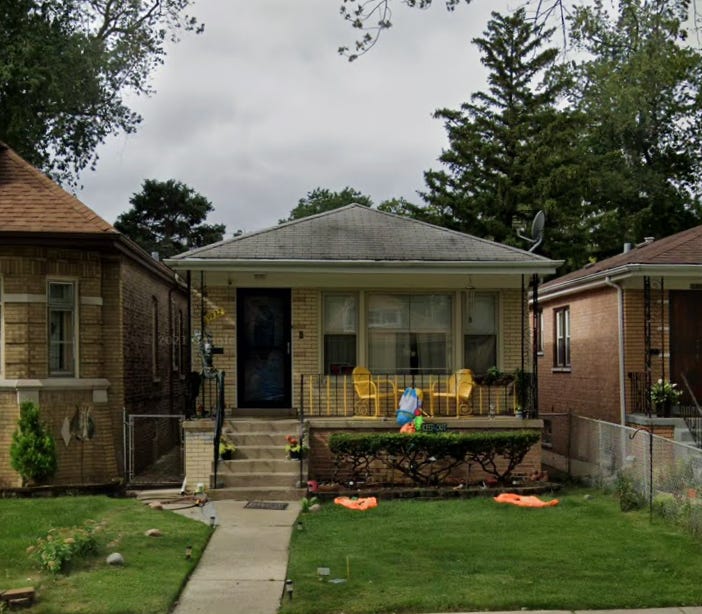
The Sun-Times adds that the Draper home “is a few blocks from that of another black, William J. Harper, in the 10300 block of S. Prospect, which was damaged by arson May 25.”
The papers all note that the Drapers had lived on the block for three months, with no previous trouble. The papers all call Gresham still a “predominantly white” neighborhood, but the Drapers were one of six Black families on the block at that time, per Chicago Today.
“Police are investigating the firebombing,” wrote Today, and everyone assumes it’s a racial incident.
“Police who arrived on the scene said that they were unable to find any witnesses to the incident, however, other police sources indicated that suspects are not believed to have been from the neighborhood.”
The Tribune follows up briefly on July 12, but simply notes that police are questioning neighbors.
In the newspapers, the current spate of attacks on Black families moving into white neighborhoods on the far South Side began in late May with the Jordan family, whose home at 12816 S. Green St. (West Pullman/greater Roseland) was vandalized just before they moved in.
The Defender’s Charlie Cherokee Says column called this “a new wave of attacks” on May 30. It’s not really new of course, but it is an uptick as Black Chicagoans continue moving farther south and west out of the traditional “Black Belt” area on the South Side, as Cornelia Honchar’s “No Welcome Mat Out When Blacks Move In” described in the Tribune on July 9.
Two days after the Jordan home was hit, someone poured gasoline on the back porch of the Harpers, who had just moved into a Georgian in Beverly at 103rd and Prospect. The Tribune’s Peter Negronida looked at the trend on May 28 and also found Johnny and Sylvia Mapps at 822 W. 129th. The Mapps had lived in their bungalow also in West Pullman/greater Roseland for six weeks, and said they’d had rocks thrown at the house the whole time.
See May 25, May 26, May 27, and May 28 for more. Chicago Today examines the issue on June 4, and the Trib’s Honchar follows up her July 9 article tomorrow:
July 10, 1972: “Why Whites Leave, Stay”
Chicago Tribune
by Cornelia Honchar
White families who leave racially changing neighborhoods usually say they do it for the safety of their kids, while the elderly and childless may stay longer, writes Cornelia Honchar in part two of her two-part series.
Honchar talks with John Jones, a pseudonym, who specifically moved to Austin six years ago to live in an integrated community, just as some West Side Black families began moving in.
At first it was great, says Jones:
“Then the panic peddlers moved in, using Federal Housing Administration subsidized loans, and soon we were the only white family left in the area.
“With that came defaults on mortgages, abandoned homes, and families doubled up to meet payments. The schools became overcrowded because these new families had so many children.
“Our bikes were stolen. I caught kids stealing food from our basement freezer. My young children were beaten up. They became very resentful and withdrawn. My older children could make allowances and are still civil rights fighters.
“Finally our whole lifestyle changed—locked doors, walking our kids to school, and living with the increasing fear they would be shot or hit by a car. We never had any trouble with the adults, tho. We went to parties, drank together—but our kids couldn’t take it.
“So we did the only thing we could. We moved to an integrated community on the North Side.”
Honchar notes that pattern has happened in Marynook, centered at 83rd and Woodlawn, where she says only about six white families remain in a 450-home community. This is the neighborhood next to Chatham where Louis Fitzgerald, now a frequent letter writer to the Defender and soon to be a Defender columnist, lived in the early 1960s when he got Channel 11 to do a documentary on the work to keep Chatham and Marynook integrated. See June 10 for that item.
Next, Honchar looks at Roseland, where “the Robert Lambs” at 346 W. 107th St. chose to stay after that area began racially changing two years ago. They’re one of five white families on a block of over 60 houses.
Mrs. Robert Lamb has lived there for 30 years, and wishes more white families had stayed, because “there was no reason to run just because a few black families moved in.”
“Many of our friends have moved to the suburbs and they’re unhappy,” says Mrs. Lamb. “Older people are like old trees—uproot them, and they die.”
But Mrs. Elaine Vander Schilden, 232 W. 109th St., has kids and says that’s why she has to leave.
“My son came home with black eyes four times and now he doesn’t want to go out and play,” she tells Honchar. “I send him to a private school now and that’s how we’ve managed to stay here, but we’re moving soon. The only other people who are staying around here have no children….We have good neighbors, but children from other areas come in and cause trouble.”
Honchar mentions two recent racial incidents have caused fear in white South Siders—16-year-old Kathleen Fiene’s shooting near her home at 5752 S. Paulina, in which a Black youth was arrested for her murder; and the critical injury of a 3-week-old baby by a brick thrown through a window at 7824 S. Wood St.
Honchar concludes by noting that Chicago urbanologist Pierre de Vise “has predicted that Chicago will be entirely black by 1990.”
“But as white people who have stayed in predominantly black neighborhoods have asked, ‘Once you run to the suburbs, what do you do when integration goes to the suburbs? Run again? Is the running worth it?’”
July 11, 1972
by Charles Nicodemus
This story is so big, the Daily News typesets the first paragraph about two sizes bigger than the rest of the story—so let’s see it in the original:
The mighty Daley has struck out, after leading the Illinois delegation to the Democratic National Convention since 1958.
1958.
“In a tension-filled roll call, the convention voted 1,486 to 1,371 to reject a resolution that would have reversed its credentials committee, which voted 10 days ago to oust Daley and 58 other challenged Chicago delegates,” writes Daily News political editor Charles Nicodemus.
Daley lost by 115 votes. On the Credentials Committee vote two weeks ago, he had lost by just three votes.
And still, nobody knows where Mayor Daley is.
His “movements have been almost as mysterious as those of industrialist Howard Hughes”. He hasn’t been seen in Miami, much less on the convention floor.
At the last minute, expected presidential nominee U.S. Sen. George McGovern “offered a compromise that would have seated Daley’s forces and the Singer challengers, giving each delegate half a vote,” writes Nicodemus.
But Daley wasn’t playing.
Here’s how Nicodemus says it went down:
First, the McGovern forces won the floor vote for the disputed California delegates—they all went to McGovern by a vote of 1,628 to 1,238.
That meant McGovern had the votes to keep the Singer-Jackson challengers in the seats they’d already won from the Credentials Committee.
“A hurried conference was then held between McGovern’s top political operator, Frank Mankiewicz, and Singer and his co-chairman, the Rev. Jesse Jackson, director of Operation PUSH.”
Next, “Mankiewicz suddenly informed Singer that McGovern was going to attempt ‘to impose a compromise, in the interest of party unity.’”
The Singer-Jackson delegates held a “frenzied caucus” and agreed to the compromise.
But like an invisible spirit working a Ouija board, Mayor Daley spoke through his former corporation counsel, Ray Simon, who “told Cook County Comr. John Touhy, an alternate delegate and acting state party chairman:
“‘Pass the word: The mayor says no compromise.’”
So “Daley’s floor managers, led by House minority leader Clyde Choate…passed the word…”
“As a result, the Daley group and the anti-McGovern forces backing it decisively defeated an attempt to suspend the convention’s rules to permit introduction of the compromise.
“A Daley confidant said that the mayor’s forces had gambled that if the convention were faced with actually ejecting the mayor or seating him, it would capitulate and return Chicago’s delegates to Daley.”
Nope.
“An angry (U.S. Rep. Roman) Pucinski, the party’s Senate nominee, said after the vote that ‘the Democrats may have come close to committing suicide here tonight….We’re going to have a very difficult time marshaling the support of 3,500 community workers (precinct captains) for the top of the ticket after this convention has thrown out Chicago’s elected delegates for no good reason.’”
But Ald. Singer predicted it would “be a tremendous shot in the arm for independent politics in Chicago. This is going to bring thousands of new people into politics and government.”
Ald. William Cousins (8th) not only pooh-poohed the idea that Daley forces wouldn’t push the straight Democratic ticket in November, he predicted: “Meanwhile, this is going to have an enormous impact in the black community, in terms of encouraging participation. Now we’ve shown you can beat City Hall. So more blacks are going to register and vote, to help us keep on beating City Hall.”
And Rev. Jesse Jackson called it “a new dawn.”
Earlier in the evening, Daley’s former corporation counsel Ray Simon addressed the convention with Daley’s side of the argument, and Jesse Jackson spoke for the challengers. You can guess who won over the audience.
As Nicodemus describes it, “Mr. Jackson climaxed the challengers’ arguments by telling the convention that Daley ‘broke every rule in the book in getting his delegates elected.”
“‘In ‘68 (at the tumultuous Democratic Convention in Chicago), we didn’t know the rules,’ Jackson roared. ‘We were out in left field. But now we’re down out of the bleachers. We’re playing the game. We’ve revised the rules, and we’re going to win.’”
July 11, 1972
by Joel Weisman
“The legendary Richard J. Daley era of Presidential politics came to an abrupt end early today when the Democratic National Convention refused to seat the mayor and 58 other Chicago delegates,” writes Joel Weisman.
“Following his custom of going to the brink in political showdowns, Daley rejected all offers of compromises with a group of independent Chicago challengers and forced ‘an up or down vote’ on his seating.
“The end came in a dramatic roll call when the convention refused to approve a Credentials Committee minority report recommending the Daley delegates be seated. With 1,473 votes needed for passage, Daley forces received 1,371.5 against 1,486.
“Under all of the compromise proposals, including one placed before the entire convention, Daley could have been seated, even tho the Credentials Committee had previously found him in violation of party reforms.”
Daley supporters were absolutely confident they’d win “Right up to the actual moment the balloting…began,” writes Weisman. “So confident were they, in fact, that they strenuously objected to a motion by former Nebraska Gov. Frank Morrison that both the Daley and Singer delegation be seated, with each delegate getting one-half vote.
“When this was proposed, [Daley loyalist Cook County Commissioner Jack] Touhy clenched his fists, gritted his teeth, jumped slightly in the air and began shouting, ‘No, No, No.’
“The rest of Daley’s lieutenants took up the chant and forced temporary chairman Larry O’Brien to order a lengthy roll call vote on a suspension of the rules.”
Just before Morrison proposed the 1/2 vote compromise, writes Weisman, “the Singer delegates caucused to decide whether or not to accept the compromise if offered from the floor. The vote…was relatively close, but finally in favor”.
“‘We were willing to compromise to the end, but he wasn’t,’ said Singer, who now, like [Rev. Jesse] Jackson, is a potential candidate for mayor. ‘As usual, Daley wanted to win it all—play his game or take up the marbles and go home.’”
“As the final roll was called, Wayne Whalen, chief attorney for the challengers, checked off his carefully gathered estimates of support—which in most cases were very close to the actual voting.”
READ MIKE AT THE 1972 DEMOCRATIC NATIONAL CONVENTION!
And follow Mike every week at Mike Royko 50 Years Ago Today.
July 11, 1972
Chicago Today
by Dorothy Collin
“The unbelievable happened. Mayor Daley, King Richard for so many years, lost his seat and his power at the convention of his party,” writes Today’s Dorothy Collin.
“The 59 Singer-Jackson delegates completely lost their guarded cool when the New York vote in their favor was announced and from there until the end it was pandemonium.
“They sobbed and laughed. Everyone hugged everyone else. Singer and Jackson exchanged the soul brother handshake. [See picture on front page of Daily News, item above, for the full picture.]
“Bill Singer, surrounded by the national press under the hot lights, winner of a mind-boggling victory, raised his arms in victory. And cried.
“Jackson climbed on a chair, raised his fist, grabbed a mike and yelled, ‘Nation power. Nation power.’ The delegates roared back.”
….“John Steven, who ran against the Daley machine twice for alderman in the 42nd ward and lost, jumped to the seat of his chair, raised his arm, and cried, ‘I always knew this day would come and it has.’”
And Wayne Whalen, “attorney for the Singer-Jackson delegates who fought his way thru 13 courtrooms trying to win the legal battles for the delegation, just stood and gripped hands and smiled while people hugged him.”
July 11, 1972
Chicago Today
no byline
“Three of Mayor Daley’s oldest foes in the City Council expressed shock today at the Daley delegation’s defeat at the Democratic national Convention.
Lone Republican Ald. John J. Hoellen answered “with a muffled laugh”:
“‘I deeply regret Daley is no longer welcome in the Democratic Party,’ Hoellen said. ‘But the Republican Party is open and we welcome him.’”
Legendary 5th ward independent Democrat Ald. Leon Despres was wise, as usual. He said Daley’s “own intractable attitude helped defeat him. It was unfortunate that it had to be. A compromise could have made a great contribution to this convention….
“I only feel regret at the rigidity of the Daley stance. In the short run, this will have no effect on Daley’s power in Chicago. A little of the luster has rubbed off, that’s all.”
July 11, 1972: Hanramania
Chicago Daily News
by Edmund J. Rooney
Hard to believe, but there are a few other things going on in the world outside Miami—including, finally, the trial of Cook County State’s Attorney Edward V. Hanrahan and 13 codefendants for—it’s not the simple obvious charge you expect like ‘murder’ so take a breath here before diving into the rest of the sentence —conspiracy to obstruct the investigation into a 1969 predawn police raid by police assigned to Hanrahan’s office on a West Side Black Panther apartment that killed Panthers Fred Hampton and Mark Clark.
Yesterday, Hanrahan and his co-defendants chose a bench trial with Judge Philip Romiti, who’s been presiding over the case for what seems like forever, as Hanrahan used every possible legal device to postpone the proceeding.
Romiti “went to a West Side apartment Tuesday morning to see for himself the place where two Black Panther leaders were shot to death in 1969,” writes the Daily News’ Rooney.
“Romiti…said Monday he would go to the apartment at 2337 W. Monroe ‘so I can better understand the opening statements from both sides and the evidence that follows.’”
…. “The five-room first-floor apartment is virtually unchanged since the raid. The owner of the building, Burdette Griffin, 56, of 2252 W. Monroe, has boarded up part of the building because of vandals and has also put up a fence in the back.”
Romiti and Hanrahan tried to go on Monday, but nobody told owner Burdette Griffin, so they didn’t have a key to get in.
After the visit today, they’ll all go back to court for opening statements.
July 12, 1972
Chicago Tribune
The Tribune and Sun-Times were cheated out of the best convention headlines when Mayor Daley got kicked out, due to timing—when something happens at 2 a.m., that’s long past deadline for a physical morning paper.
So the Trib and Sun-Times do follow-up and analysis today, but kinda sorta miss the exciting, breaking nature of Mayor Daley’s downfall. However, the Trib did use this evocative picture:
In the lower right hand corner, that’s Daley stalwart Cook County Commissioner Jack Touhy with the white hair, looking like a kid who lost his dog. Next to him on the extreme right, that’s Illinois State Sen. Clyde Choate. I can’t find it right now, but somewhere, another article noted this memorable moment because Rev. Jesse Jackson propelled himself up onto the chair he is currently standing on by jamming his left hand onto Clyde Choate’s shoulder.
Clyde Choate, by the way, is the subject of Mike Royko’s November 9, 1972 column, which I compared favorably to Milton’s “Paradise Lost.” Clyde Choate didn’t like the column nearly as much, which led to Mike’s November 16, 1971 column, “Punch me in the nose!?”

July 12, 1972
Chicago Defender
That’s “Just $2,699” in 2022 money.
July 12, 1972
Chicago Defender
July 13, 1972
Chicago Today
July 13, 1972
Chicago Today
Miami Beach— “The new power in Democratic politics in Chicago plopped down in a chair in the lobby, kicked off his shoes, sighed, wiggled his toes, and asked, ‘What do you want to know.’
“‘I want to know you feel personally, in the gut, what you feel toward Daley, and what happens next,’ I told Bill Singer,” writes Jack Mabley.
“‘Daley? Am I sorry for him? Well, not knowing his reaction, it’s hard for me to know mine. If he stood in front of the TV set and threw things at it, I could feel for him. If he sat there cussing, I guess I could say I’m sorry.’”
Mabley wonders if Singer has run into any of the Daley 59, and how they’re taking it.
“I’ve talked to a lot of them, and they’ve all been very gracious,” Singer tells Mabley. “There’s been a relaxed kind of bitterness.”
“Isey Horwitz, the prototype of the old 24th Ward machine type pol, strolled by and waved,” writes Mabley. “Singer waved back. ‘See what I mean.’”
[NOTE: See July 14 to see how long that lasted.]
Mabley writes that Singer “still hasn’t grasped the picture of himself as a Chicago political power at 31.”
But actually, it sounds like that is exactly what Singer is picturing:
“First of all,” says Singer, when Mabley asks what comes next, “we’ll work for McGovern….After November—well, more and more there is involvement in the grassroots kind of politics. It began, for me, at least, when I was elected alderman in the old 44th Ward by 427 votes. I was elected [to the redrawn 43rd ward] by 6,000.
“The same kind of activity is taking place now in the 42d Ward, 44th, 46th, 47th, 48th, 50th, 40th, 1st, and 2d, and out in the 32d, and there’s always been strong independent activity in the 5th and 7th.
“Now [Ald. William] Cousins is getting strong in the 8th. You see, these aren’t just New Town and the Lake Shore and Hyde Park. Cabrini-Green is in there, and we’re moving out west, into Rostenkowski’s district.
“You’re going to see some serious aldermanic contests in ‘76. We can demonstrate in any section of Chicago good hard precinct work by the people in the community.”
July 13, 1972: Hanramania
Chicago Today: Man in the News
by Don Harris
Don’t let the headline fool you, this is a little profile of Cook County Circuit Court Judge Philip Romiti, who “caught the ‘hot potato’” of the Ed Hanrahan Black Panther case almost a year ago.
It’s finally on, and Cook County State’s Attorney Ed Hanrahan and 13 co-defendants chose a bench trial.
“Romiti now stands as the only person entrusted with making a decision in the trial…a decision that could make or break Hanrahan’s political career and have a profound influence on the November elections,” writes Don Harris.
“Should Hanrahan be cleared he is considered by many to have a better than good chance to be reelected next fall. In fact, there are those who believe a vindicated Hanrahan will lead the Democratic ticket.”
Romiti is former dean of the DePaul University Law School, “plucked from DePaul by the Cook County Democratic organization in 1968….Romiti has established a reputation of patience and placidity, but the tall, balding legal scholar gets tough when the situation calls for a stern decision. He has had no qualms about sentencing a convicted murderer to the electric chair.”
July 13, 1972
Chicago Today
No byline
“Mayor Daley is scheduled to welcome veterans attending the 54th annual Illinois American Legion convention at the group’s opening business session tomorrow in the Palmer House.
Or will he?
July 14, 1972
Chicago Today
no byline
“Like a modern Achilles, Mayor Daley remains sulking in his tent.
“At least it would seem so in light of his recent convention reverses and his current refusal to return to the public scene.
“It is going on two weeks since Daley has been seen or heard from by other than trusted associates.
“Today he has declined to welcome delegates to the Illinois American Legion Convention in the Palmer House, delegating the job to Deputy Mayor Kenneth Sain.
“But probably the main indicator that Daley is not ready to show himself is that he passed up one of his most dedicated acts last night, attending the funeral of a loyal Democratic Party worker.
“The mayor failed to attend services for Ald. Robert Biggs (29th), in the Greater Mount Sinai Baptist Church, 1421 W. Washburne Av.”
July 14, 1972: Hanramania
Chicago Daily News
by Edmund J. Rooney
Chicago Today
by Mike Garrett and Jeff Lyon
“Rumors were rife around the courtroom of Criminal Court Judge Philip Domitian yesterday that Deborah Johnson, one of seven Panthers who lived thru a state’s attorney’s police weapons raid, would take the stand,” writes Chicago Today.
“If she or any of her fellow survivors testified, it would be the first time the public has heard the Panther side of the December, 1969 case in which 14 raiders entered a flat at 2337 W. Monroe St., and in the ensuing gun fray two Panthers were killed.”
Let’s remember the people on trial are Cook County State’s Attorney Edward Hanrahan and 13 co-defendants, and they chose a bench trial with Judge Philip Romiti.
Meanwhile, yesterday’s session was mainly spent with F. Thomas Peyton, “a visual information specialist with the Federal Bureau of Investigation.
“Peyton brought to court with him a one-eighth scale model of the raided Black Panther flat, and a box full of 44 pieces of miniature furniture. Peyton said he made the model after five inspections of the apartment shortly after the raid. It will likely figure strongly in further testimony.”
From the Daily News, Edmund Rooney writes up a storm on this one—you’d think he was working for Chicago Today, today. Rooney notes that Peyton “built a model of the Texas Schoolbook Depository and the site of President John F. Kennedy’s assassination.
“He built a model of a motel in Memphis, where the Rev. Martin Luther King Jr. was assassinated.
“He built a model of a townhouse where Richard Speck, in one night’s grisly work, murdered eight nurses on Chicago’s Far South Side.”
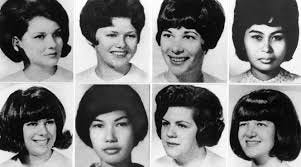
….“On Thursday attorney Wayland Cedarquist pulled away the shroud from F. Thomas Peyton’s pride and joy.
“It became Exhibit 12 in the trial…While F. Thomas Peyton finally took the stand, a bevy of attorneys—there are an odd-numbered 13 in the case—sniffed around the scale model of the death scene like dogs around a fresh bone.”
“Peyton measured everything in the apartment during his visits, and told the court the height of the ceilings, width of the doors, height of window sills above the floor, the height of outside stair landings above the ground, the number of risers in the stair.
“F. Thomas Peyton was very precise.
“When he finished, they let him go home to Alexandria, Va.
“But his pride and joy remained, painted in government-issue battleship gray, a mute reminder of what this snail’s-paced trial is about.”
July 14, 1972
Chicago Today
July 14, 1972
Chicago Today
When “The Godfather” first opened back in March, tickets were $4, which Mary Knoblauch calls “unprecedented for a non-road-show film.” The high price was negotiated between Paramount and major theaters across the country because the three-hour film can’t run as often per day as a typical 2-hour movie.
But what about ticket prices in smaller, outlying theaters?
Back in the day, the typical film roll-out process saw movies playing in one or two big theaters downtown—called the “first run.” That period could last months if the movie was popular enough. Then films closed downtown and moved into their “second run” in neighborhood theaters. “The Godfather” is finally starting that leg of the process, moving on from the Chicago Theater to 18 theaters this weekend, plus three more next week.
“The least you can expect to pay is $2” in neighborhood theaters, “and generally that means a weekday matinee,” writes Knoblauch. “Evenings, Sundays, and in some cases all weekend, you will pay $2.50 or $3 or approximately regular first run prices.” Drive-ins are all $3. That’s $17-$20.25 in 2022 prices. In ‘72, typical second run prices were more like $1.50 to $2—$10 to $13.50 in 2022.
If you haven’t guessed it, this may be the first time a film critic bothered to write an entire article about the price of a specific movie at all, much less the price during its second run in the neighborhoods.
In addition to the high price, Knoblauch notes the unusual opening strategy Paramount used for “The Godfather.” She writes that Paramount thought last year’s blockbuster “Love Story” would have done better if it hadn’t played for so long in the Loop before going on its second run in the neighborhoods. In New York, “The Godfather” opened at six Manhattan theaters at once rather than only one or two, and quickly moved to outlying theaters to play simultaneously at 30 more theaters.
“Chicago is getting a modified version of that opening pattern,” writes Knoblauch. “‘The Godfather’ was still doing booming business downtown when it closed yesterday, and Paramount is banking on its New York experience that Chicagoans will be willing to pay regular first run prices for the privilege of seeing ‘The Godfather’ in a theater near their homes.’”
July 14, 1972
July 14, 1972
by Charles Nicodemus
Chicago Today
(no byline)
“Miami Beach—A meeting of the Illinois delegation exploded into a wild, angry shouting match Friday as outnumbered regulars tried to block the election of Illinois’ new members to the expanded Democratic National Committee,” writes the News’ Charles Nicodemus.
It’s in a meeting room at the Diplomat Hotel, ironically enough.
“The incident was the first confrontation between Ald. William Singer’s Chicago challengers and the regular organization Democrats, whom the Singer forces had overcome in winning the ouster of Mayor Richard J. Daley’s Chicago delegation.”
Chicago Today writes that the two sides “clashed in a bitter battle of insults and vulgarities” for two hours, “accusing each other of bad faith, and of trying to outmaneuver the other so that one side could select its candidates.
“At the end, Singer and Rep. Clyde Choate of Anna, Illinois, House Minority leader and chairman of the Illinois delegation, were hoarse from shouting.”
It’s those new reform rules again! Illinois gets six seats on the Democratic National Committee, which of course runs party procedures. Before, Illinois only got two. For some reason, six seats were even harder to divvy up.
Both papers cover the outburst by regular Democrat Buddy Davis of East St. Louis, a United Steel Workers Union member. Davis “grabbed the microphone,” writes Nicodemus, and complained, “‘I’ve watched the kind of power plays here yesterday and this morning that I thought we got rid of…the Daley Machine has been replaced with the Singer Machine.”
Chicago Today quotes Lewis saying, “We’re substituting one machine for another machine. And so far as I’m concerned, the Singer machine is just as bad.”
The Daily News’ Nicodemus gets Ald. Anna Langford’s quick retort:
“It took a machine to beat another machine. We beat you honestly. Why can’t you accept it?” But, he adds, “She left the podium crying.”
This was after the regular Democrats tried staying outside in the hallway to prevent a quorum, because they wanted to postpone the meeting until everyone was back in Chicago. That tactic didn’t quite work. After the meeting got under way without them, the regulars joined and tried and failed at several more delaying tactics before finally losing a vote over whether to have a vote.
But, per Nicodemus, at that point—
“The meeting degenerated into shouted accusations bouncing from one side of the room to the other. Singer then took the podium and announced that the Chicago group would agree to a three-week postponement after all.”
July 15-16, 1972
Chicago Daily News
July 16, 1972
Chicago Sun-Times
by Hugh Hough
“A Republican state representative said Saturday that an ‘accommodation’ has been reached with Mayor Daley whereby he will not campaign aggressively against the top of the Republican ticket in Illinois,’ reports the Sun-Times’ Hugh Hough.
Rep. Eugene Schlickman (R-Arlington Heights) claims that aides for Daley and Illinois Gov. Richard Ogilvie, with approval of the Nixon administration, will send millions of dollars in federal aid “now being withheld” to Chicago.
Gov. Ogilvie’s people deny it.
“Phony as a three-dollar bill,” per city Public Works Commissioner Milton Pitarsky, who “frequently represents the city in matters relating to federal grants.”
“Completely false and stupid” according to regional HUD director George J. Vavoulis, who would allegedly be key in a scheme to hand out money held up because Illinois hasn’t met some sort of regional planning standard. Except Vavoulis says Chicago has been certified for HUD money for six months.
Schlickman doesn’t care what any of them say. He insists “there’s no question in my mind that an accommodation has been arrived at. There was a conscious determination made to avoid confrontation with Daley in the area of planning to minimize his opposition in the fall to certain Republican candidates.”
The story makes the front page of the Daily News, too.
July 16, 1972
Chicago Sun-Times
(AP)
“Miami Beach—Three girls-for-hire escort services report they did a brisk business during the Democratic National Convention, but one agency head says, 'the real party is just getting started.’
“Dana March, boss of Supergirl, Inc., said her dating game is ‘sold out solid’ for this weekend as many convention principals remain in Florida for a bit of fun.
“‘It’ll be the biggest weekend since we opened almost three years ago,’ she said. ‘Business kept me hopping until 5 to 6 a.m. during the convention….and it’s getting faster all the time.’”
The founder of Sunshine Girl escort agency claims a state governor used his service.
The agencies claim there’s no prostitution, and charge $45 to $75 per evening, up to $185 for 24 hours. That’s $304-$506/evening, up to $1,249 daily, in 2022 money.
CAN’T GET ENOUGH CONVENTION NEWS?
God knows there’s so much more that didn’t fit today and in the last few weeks. I’ll be doing a special Extra Edition with more fun anecdotes, interesting analysis, and interviews with some of the people who lived through this seminal Chicago event—including former Ald. Bill Singer.
Did you dig spending time in 1972? If you came to THIS CRAZY DAY IN 1972 from social media, you may not know it’s part of the novel being serialized here, one chapter per month: “Roseland, Chicago: 1972” —FREE. It’s the story of Steve Bertolucci, 10-year-old Roselander in 1972, and what becomes of him. Check it out here.



